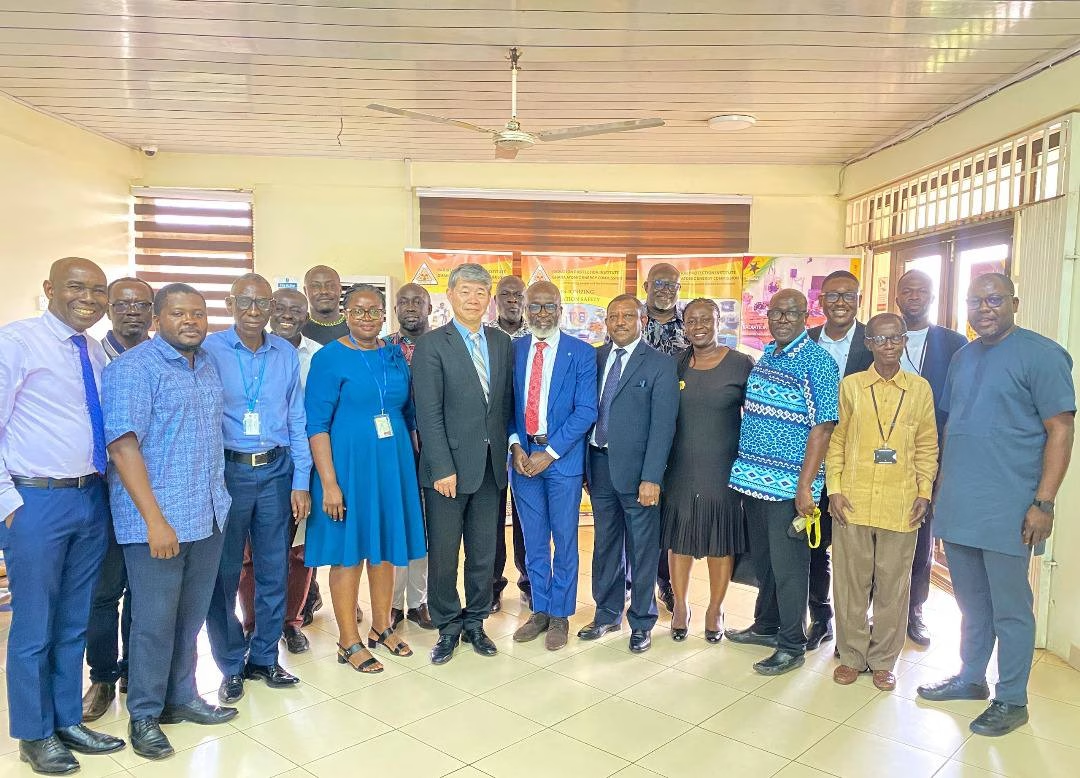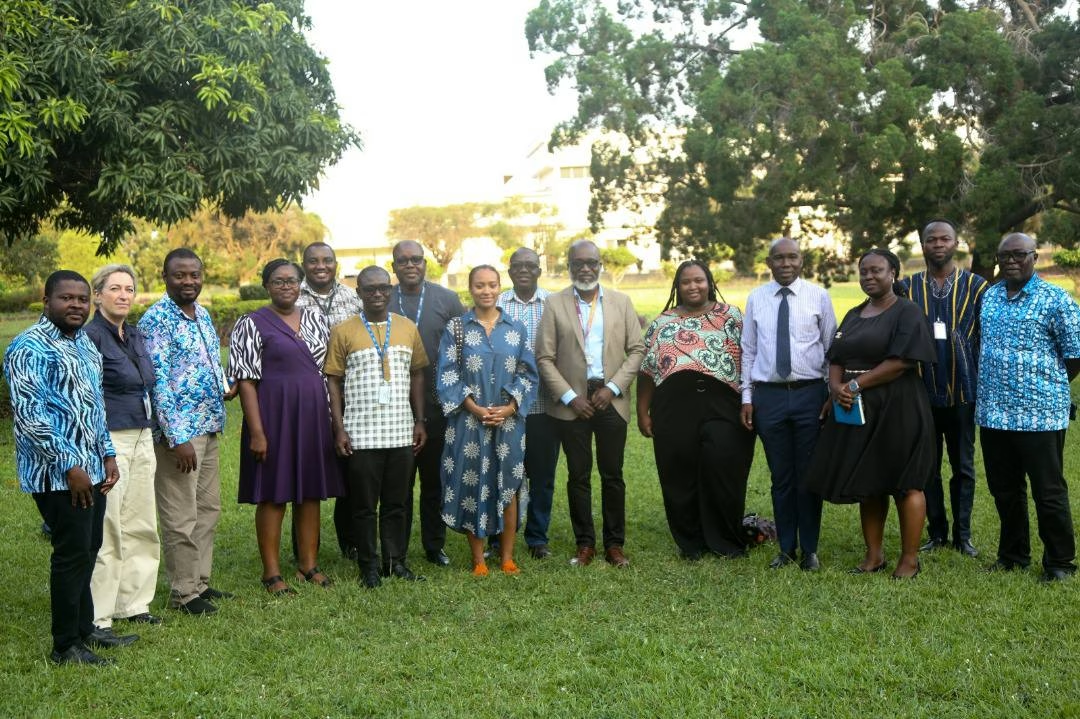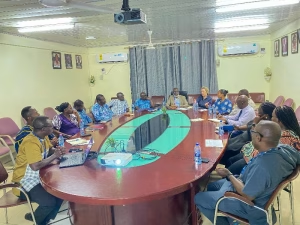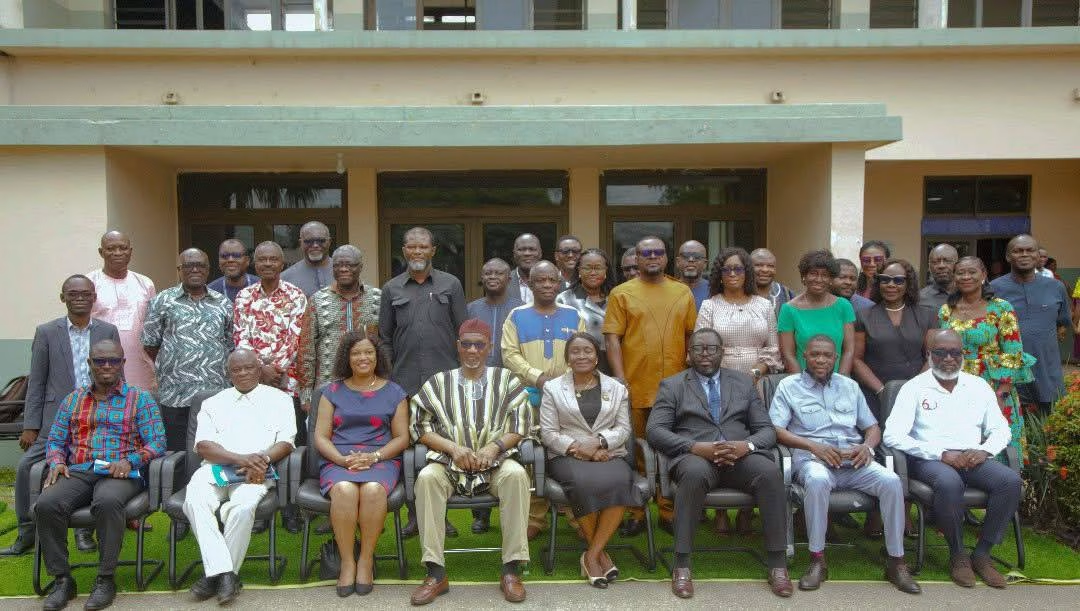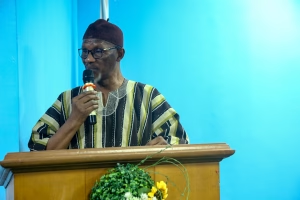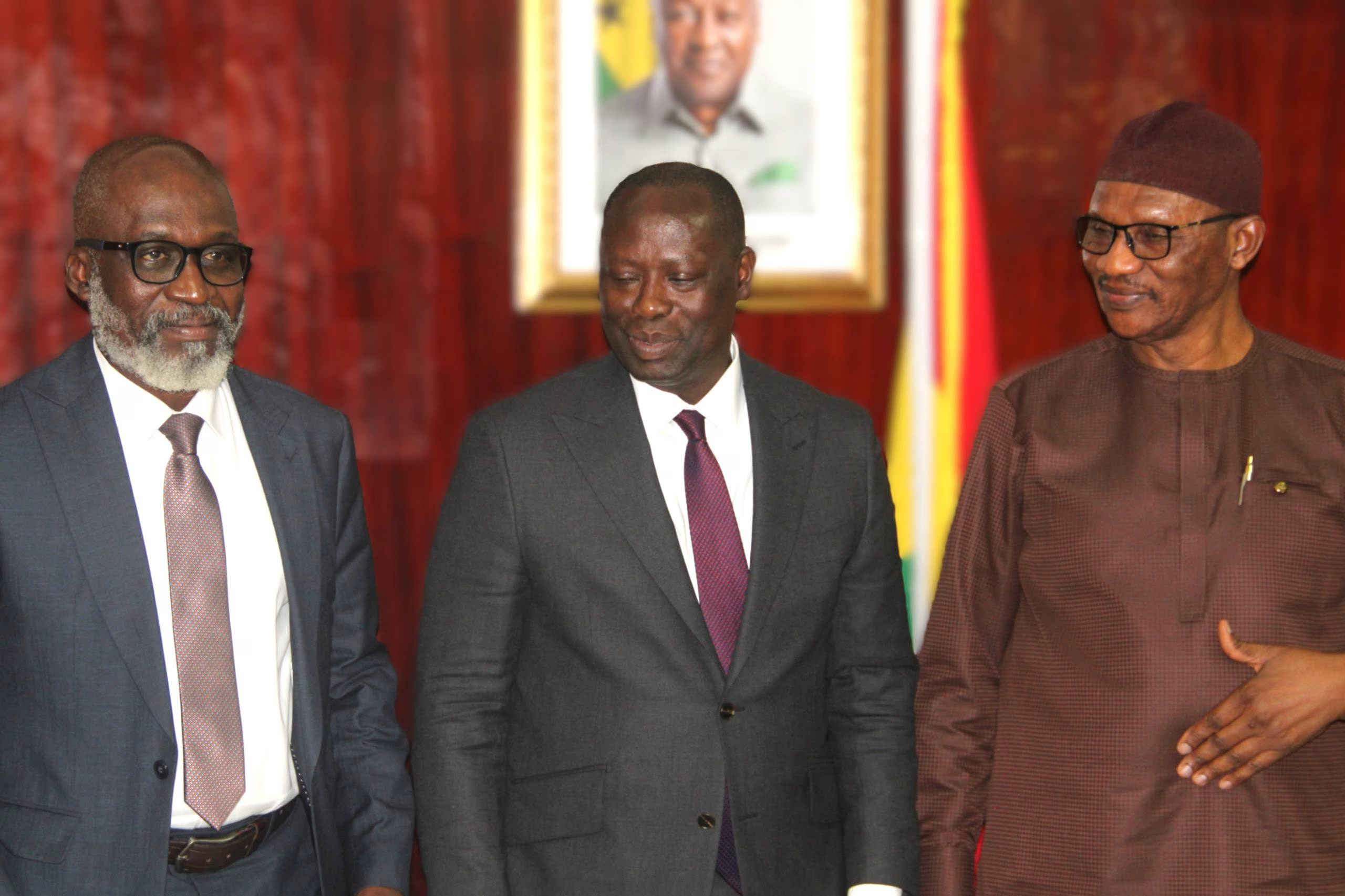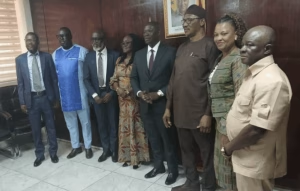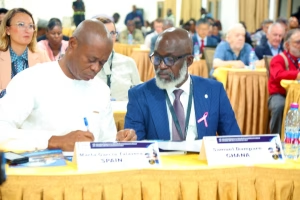The Deputy Director General of the International Atomic Energy Agency (IAEA) in charge of Technical Corporation (TC), Dr. Hua Liu, is in Ghana for a working visit.
He came along with the IAEA Ag. Director of the Division for Africa, Dr. Gashaw Gebeyehu Wolde.
The visit is aimed at strengthening ties with Ghana and to understand the current state of Ghana’s Nuclear Power Programme (NPP), usage of nuclear installations/facilities in the country and to determine other areas of corporation between Ghana and the IAEA.
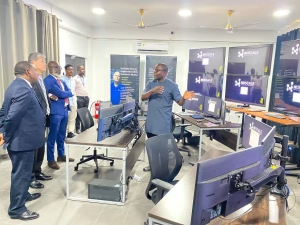
The duo was hosted by the National Liaison Officer for the IAEA in Ghana, Prof. Samuel Boakye Dampare, who doubles as the Director General of Ghana Atomic Energy Commission(GAEC).
The first day of the visit took them to the Ministry of Health(MoH), where they had a meeting with the Minister, Hon. Kwabena Mintah Akandoh. It was followed by a visit to the Ministry of Environment Science and Technology (MEST), where they met with the Ag. Deputy Minister, Hon. Alhaji Yusif Sulemana. They then proceeded to the premises of Nuclear Power Ghana (NPG), where they met with the Executive Secretary, Dr. Stephen Yamoah and his team and finally went to the Nuclear Regulatory Authority (NRA), where they met with the Deputy Director General, Prof. Augustine Faanu, and his team.
The discussions at the various Ministries and Agencies focused on possible areas of corporation in health, agriculture, energy, manpower development and environment protection. The discussions also bothered on improving current nuclear facilities and construction of new ones for the benefit of Ghana and the subregion.
Notable among them are the construction of a third radiotherapy center in Tamale, the construction of a children’s hospital and offer of scholarships for training of students in nuclear science and engineering from the undergraduate to graduate levels.
During the tour of the Ministries and Agencies, Institute Directors of GAEC, such as the Director of the Radiological and Medical Sciences Research Institute (RAMSRI), Dr. Theodosia Adom and her team as well as the Director of the Nuclear Power Institute, Dr. Archibold Buah-Kwofie were on hand at the Ministry of Health and Nuclear Power Ghana for discussions.
A team from GAEC, made up of the Director General, Prof. Samuel Boakye Dampare, Director of Administration, Mr. William Srekumah, Head of Legal Affairs, Madam Susana Nyarkoa Addo (Esq) as well as the Head of Communication and Public Relations, Dr. Mark Kwasi Sarfo and his staff accompanied Dr. Hua Liu and Dr. Wolde on their tour.
By: CPRC/CCD

